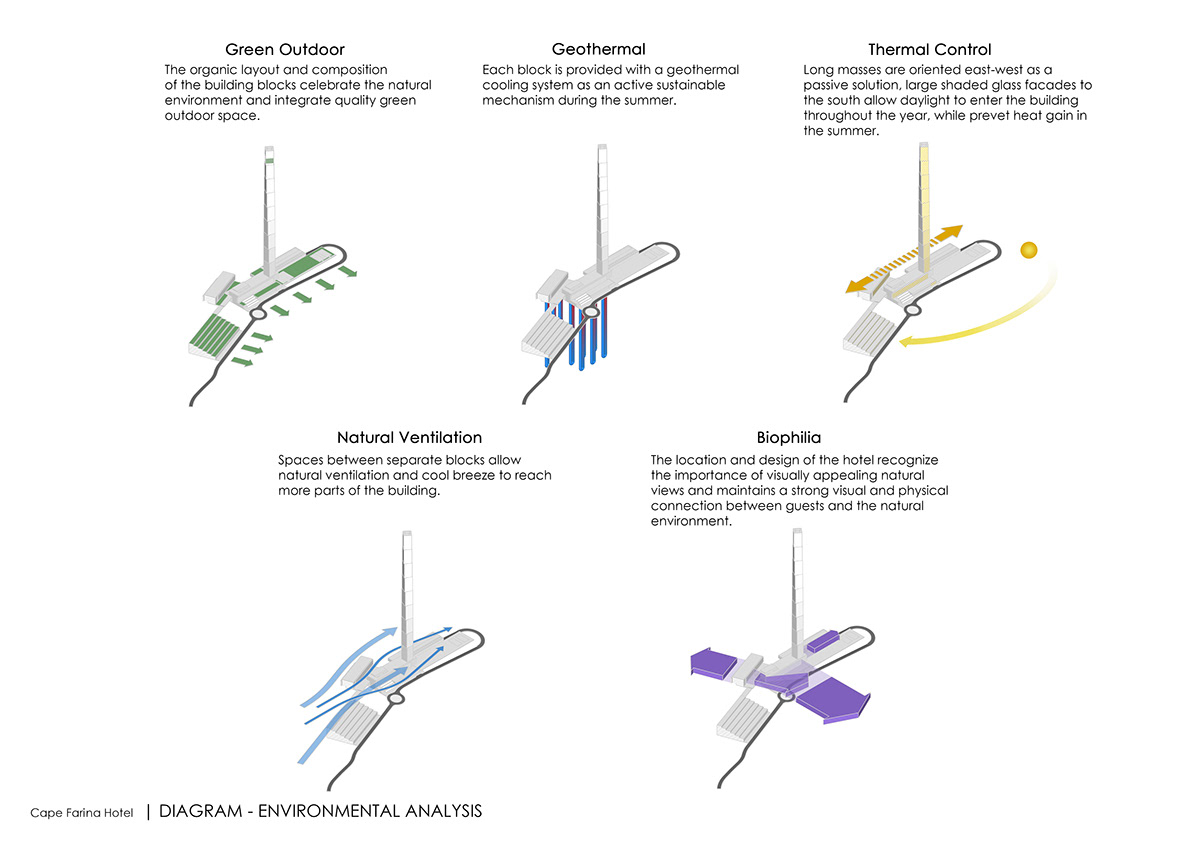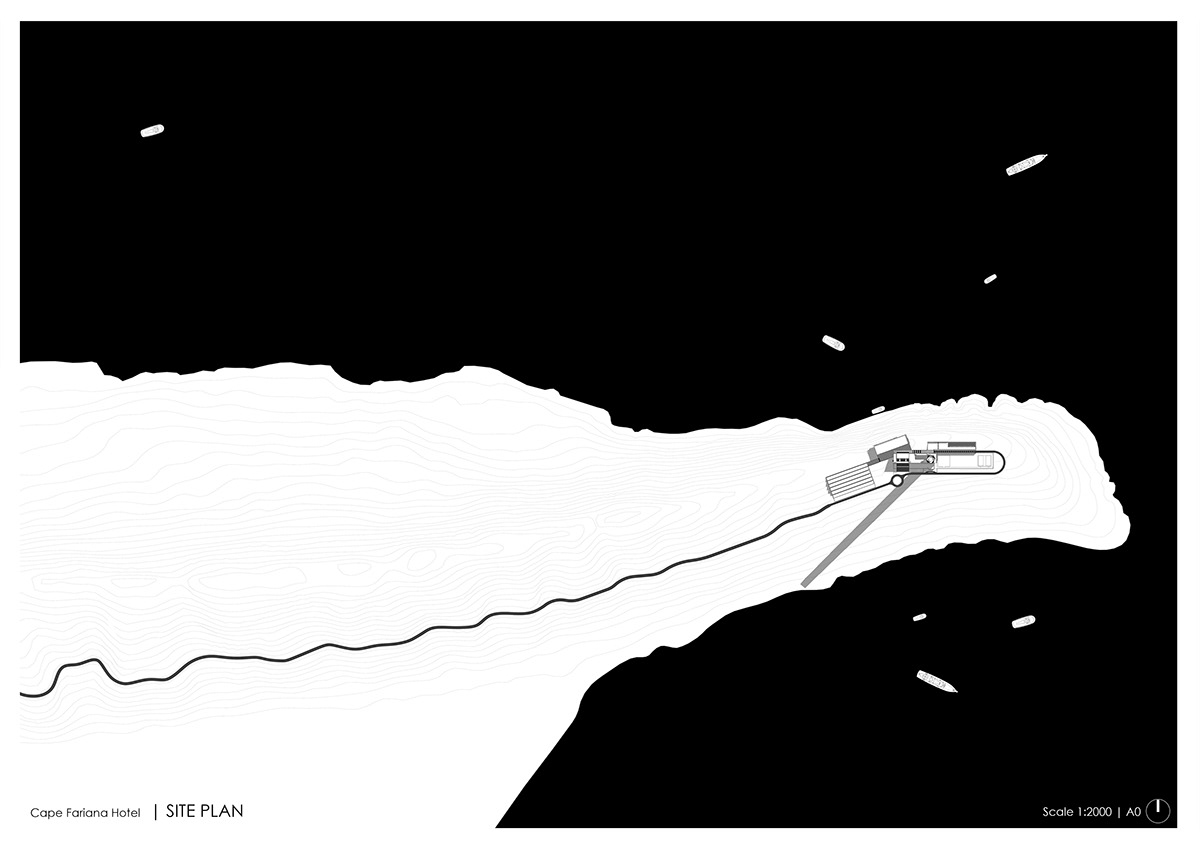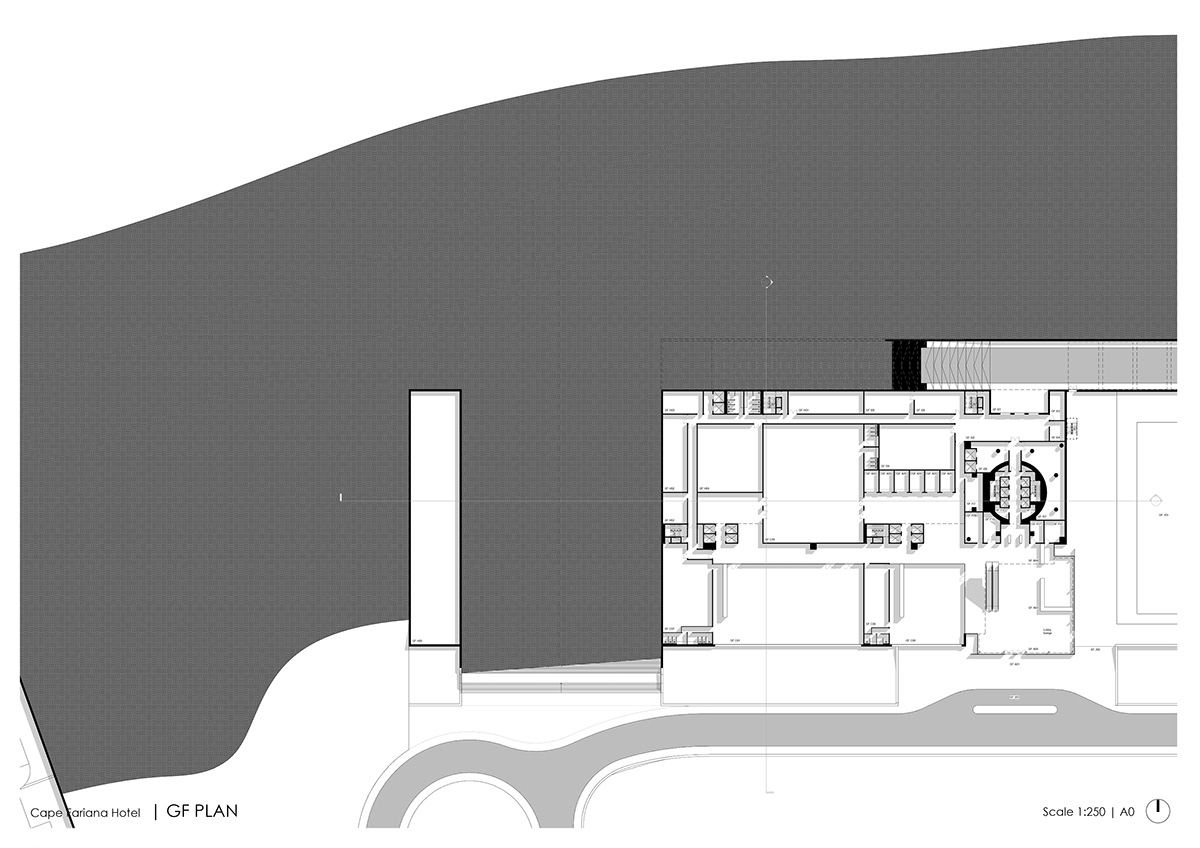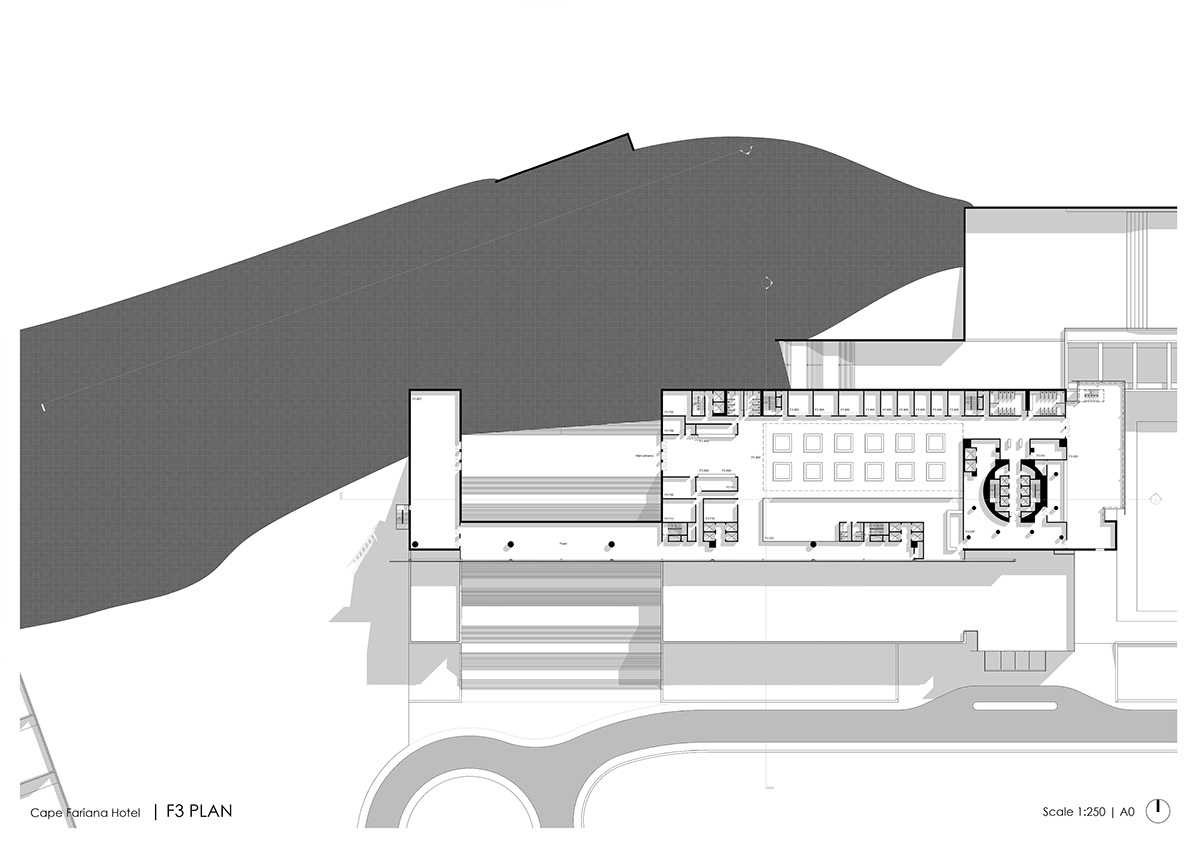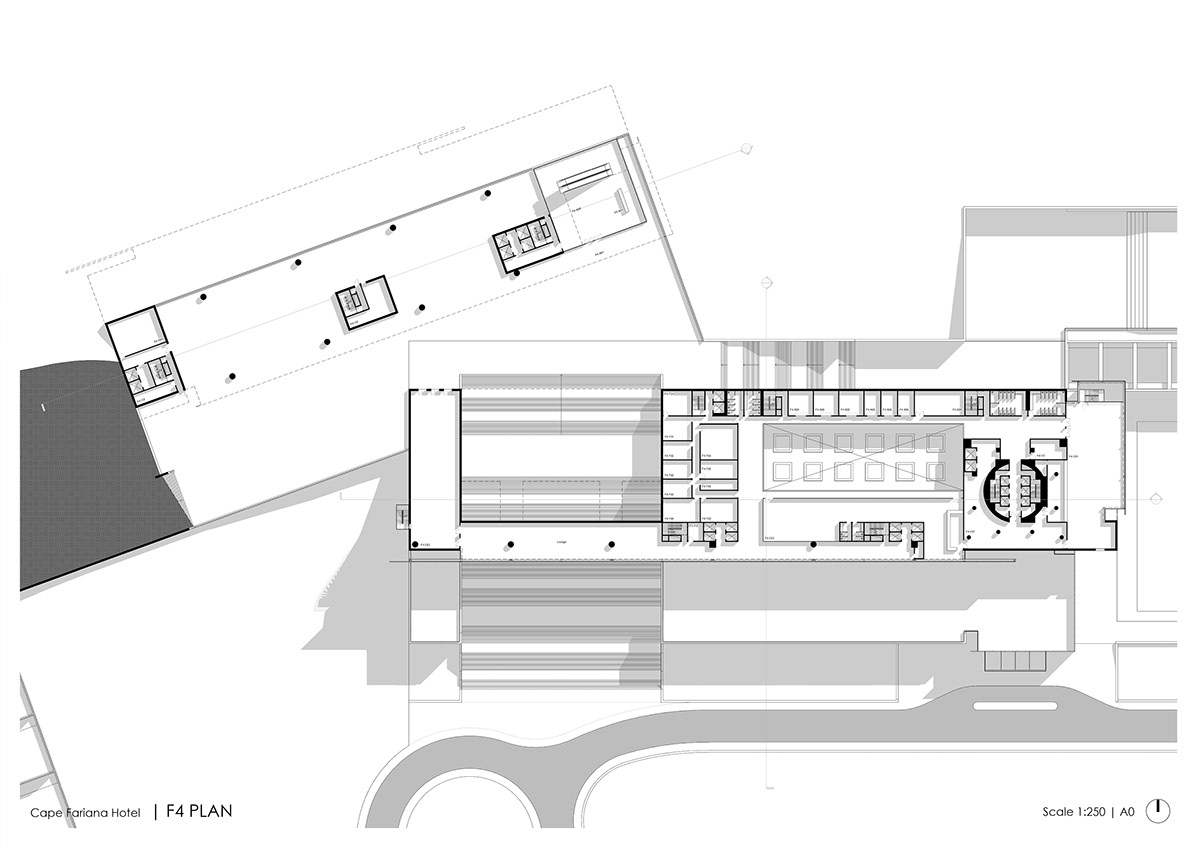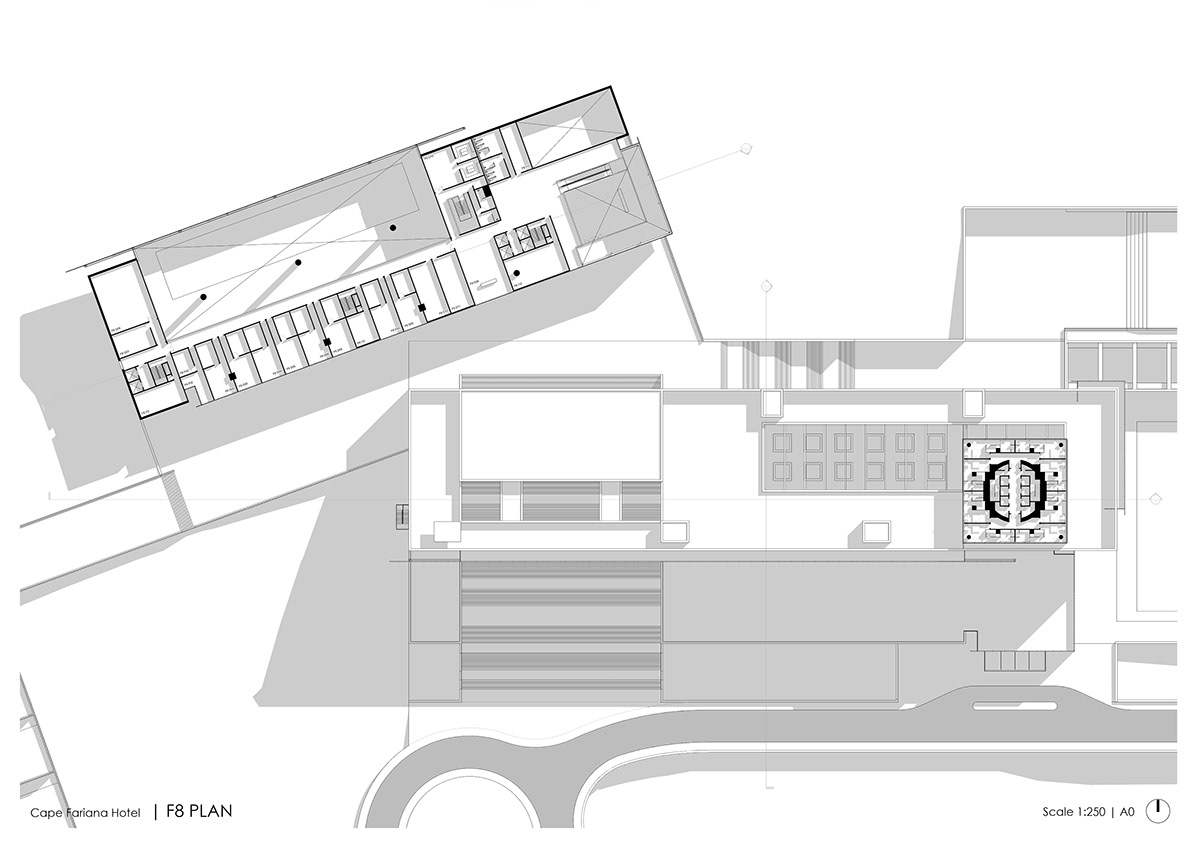Cape Farina Hotel
Bizerte, Tunisia
Description:
Cape Farina Hotel – the design proposal is the result of a research project that happened at the intersection of economy, tourism, sustainability, and architecture. The project defines an architectural approach that responds to the norms of contemporary urbanization which contributed to the decrease in social inclusion, quality of life, and many other challenges that appeared with the manifestation of the modem city. The research provided principles and suggestions to guide the design process of a hotel and spa resort at the natural area of Cape Farina in Tunisia. A hotel is selected to translate those principles as hotels provides temporary residence which simplifies the complexity of urban life. The design represents a structure that would make radical change in the way we interact with the natural world. It is a self-sufficient off grid skyscraper as an object to promote for the natural heritage and points toward the decentralization of High-rise buildings.
Studies in the field of environmental psychology prove that people who have moved from rural areas to live in the city are nostalgic for natural sittings and tend to have a positive attitude towards the sustainable development discourse. Other studies explore the impact of greenery and vegetation on our temperament, mental health, and even productivity. Building on previous research and theory, and not to repeat other attempts that integrate natural elements within urban centers, the hotel design proposes the possibility to rediscover rural conditions with a new architectural and urban approach. It also gives an image of future settlements where cities are segmented into several parts and spread across the natural landscape.
Studies in the field of environmental psychology prove that people who have moved from rural areas to live in the city are nostalgic for natural sittings and tend to have a positive attitude towards the sustainable development discourse. Other studies explore the impact of greenery and vegetation on our temperament, mental health, and even productivity. Building on previous research and theory, and not to repeat other attempts that integrate natural elements within urban centers, the hotel design proposes the possibility to rediscover rural conditions with a new architectural and urban approach. It also gives an image of future settlements where cities are segmented into several parts and spread across the natural landscape.
Design & Visualization: Aws Samara ©


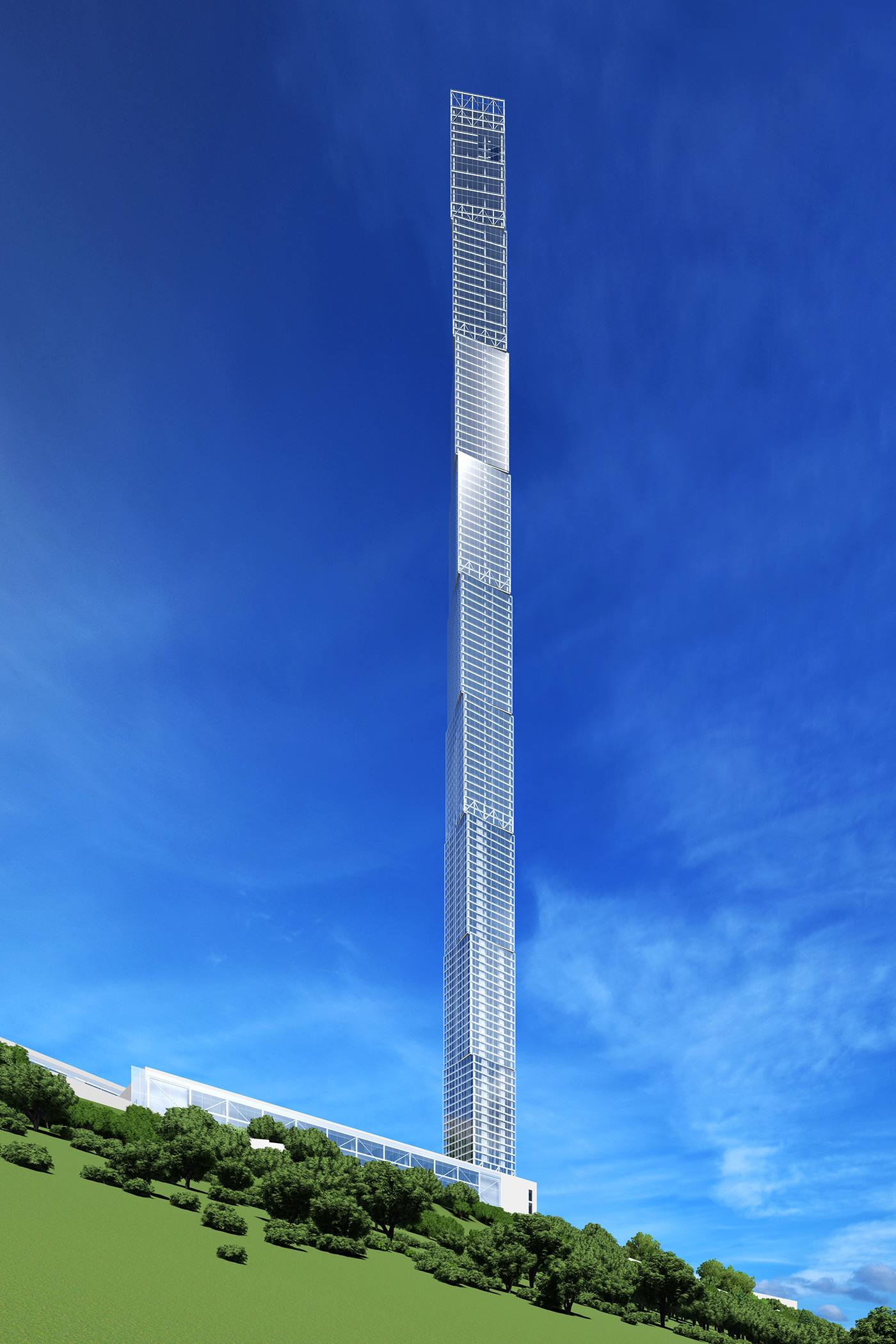
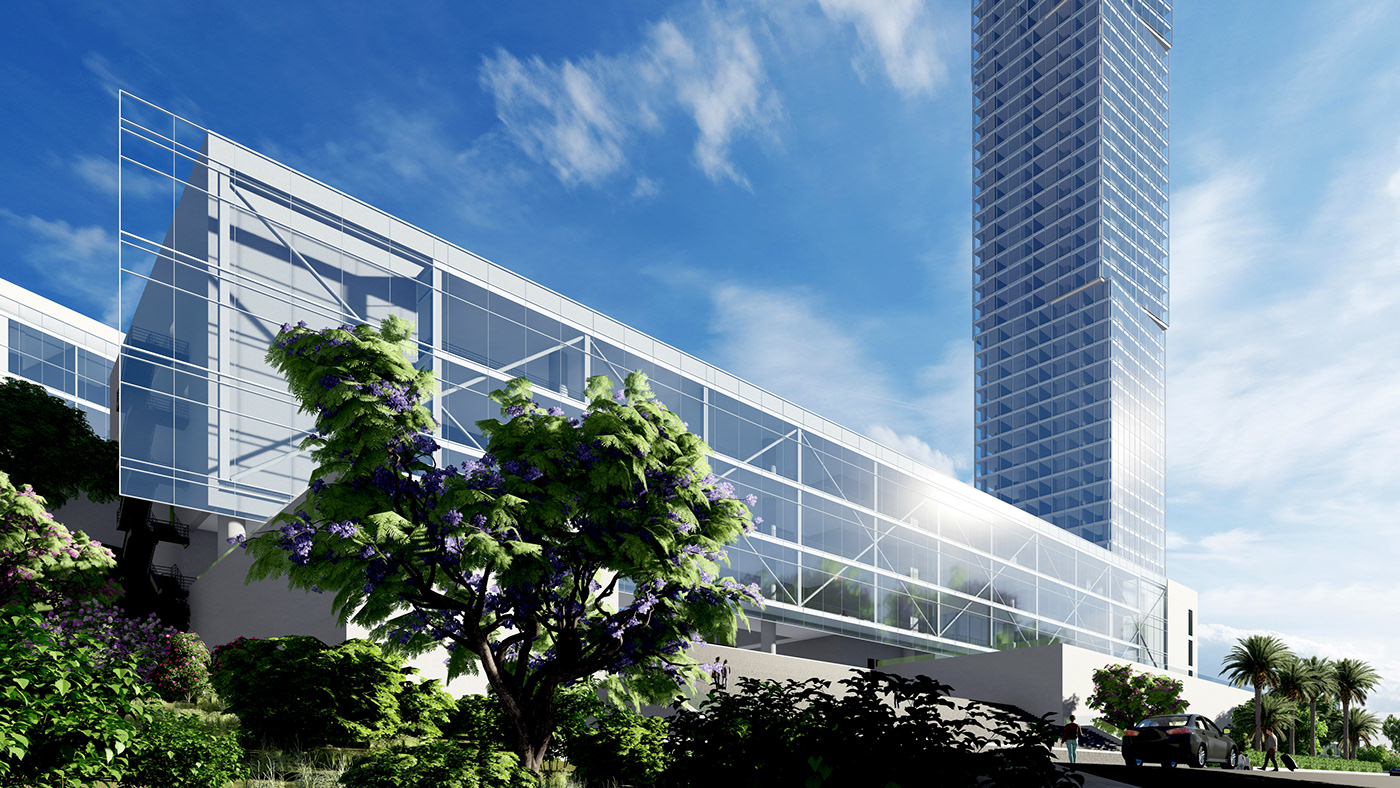
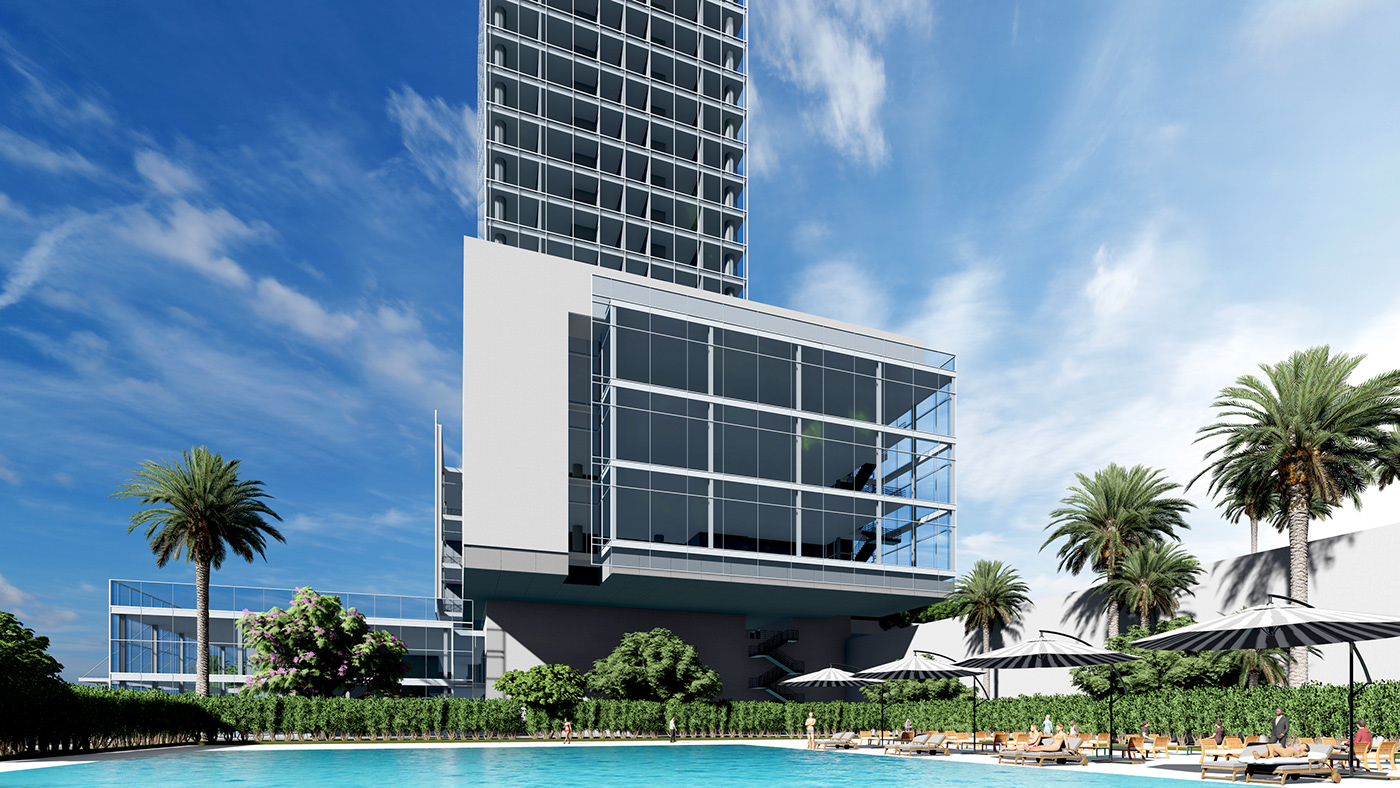










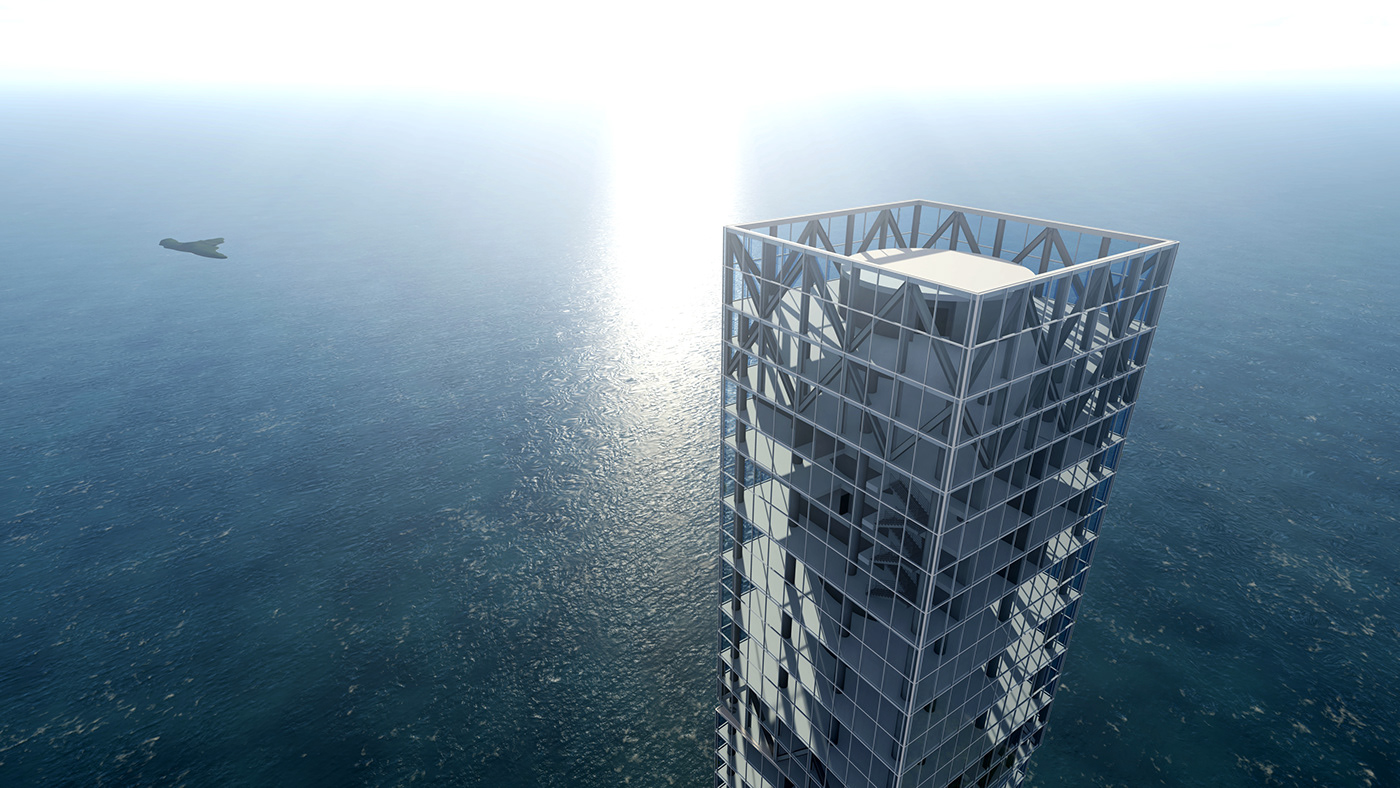
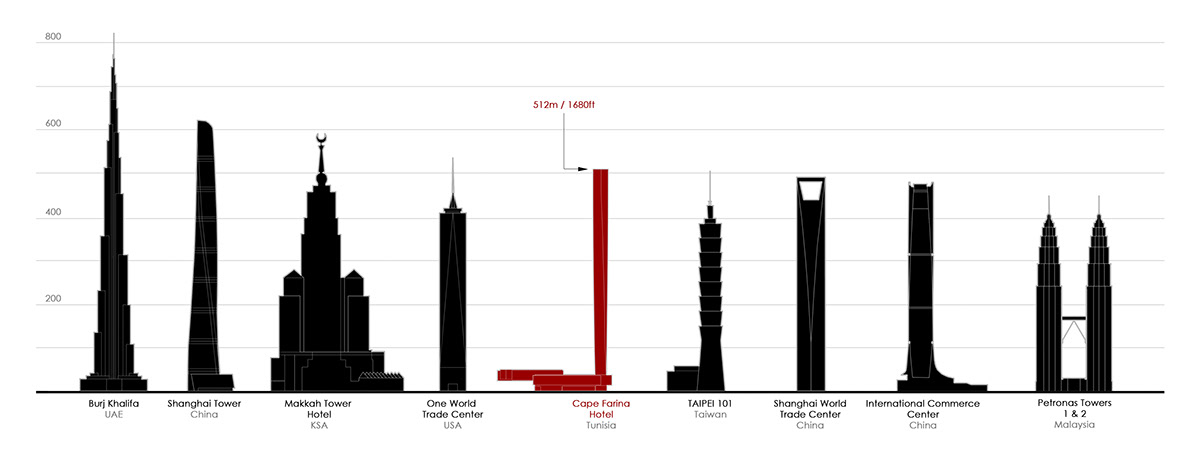
Location:
Tunisia – as the country which the project is more focused on is facing major economic challenges. After the revolution of 2011, tourism which is the leading sector of foreign exchange has drastically declined. Hundreds of hotels have closed down and hundreds of thousands of people have lost their jobs because of the drop in tourists arrival. This is another reason why the design proposal is meant to introduce an alternative type of natural tourism in Tunisia.
Tunisia – as the country which the project is more focused on is facing major economic challenges. After the revolution of 2011, tourism which is the leading sector of foreign exchange has drastically declined. Hundreds of hotels have closed down and hundreds of thousands of people have lost their jobs because of the drop in tourists arrival. This is another reason why the design proposal is meant to introduce an alternative type of natural tourism in Tunisia.
Site selection:
Cape Farina is a headland in Bizerte Governorate, northern region of Tunisia. The site is located between two major cities and a world heritage site, about 50 kilometers (Km) north of the capital city of Tunis, 40 km east of Bizerte and 50 km east of Ichkel National Park. The site is connected to the main streets and highways indirectly through unpaved planed roads passing on the highest pointes of the mountain. The mountain that distinguishes the region is also of interest and requires several considerations. Unlike other parts of Tunisia which are mostly desert land, the northern region consists of agricultural land, forests, wetlands, and green landscape.
Cape Farina is a headland in Bizerte Governorate, northern region of Tunisia. The site is located between two major cities and a world heritage site, about 50 kilometers (Km) north of the capital city of Tunis, 40 km east of Bizerte and 50 km east of Ichkel National Park. The site is connected to the main streets and highways indirectly through unpaved planed roads passing on the highest pointes of the mountain. The mountain that distinguishes the region is also of interest and requires several considerations. Unlike other parts of Tunisia which are mostly desert land, the northern region consists of agricultural land, forests, wetlands, and green landscape.
Architectural Concept:
One the one hand, the proposal falls under the disciplines of architecture, landscape and urban design as fields to influence the relationship between humans and the natural world. The trail to the building and the building itself to be a journey of awareness which allows guests to discover the natural environments of the norther region of Tunisia. On the other hand, the architecture of Cape Farina Hotel and Spa Resort attempts to perform not only as a hotel, but as the destination itself. It defines architectural design qualities that that would make from the building a tourist attraction point in a worldwide context. The design philosophy consists of three dimensions:
1- Cognitive: The presence of an object as alternative to boundaries when defining a place, body encountering space leaves evidence. An object that gives the space the ‘genius loci’, the living spirit of the place.
2- Physical: Architecture that gains value from its presence within the natural landscape. Water, greenery, and topography as parts of the whole, maintains the exceptional image and performance of the building.
3- Social: The story of visiting the place, meanings, and memories that leaves with the guests. Architecture to influence the relationship between humans and the natural world.
One the one hand, the proposal falls under the disciplines of architecture, landscape and urban design as fields to influence the relationship between humans and the natural world. The trail to the building and the building itself to be a journey of awareness which allows guests to discover the natural environments of the norther region of Tunisia. On the other hand, the architecture of Cape Farina Hotel and Spa Resort attempts to perform not only as a hotel, but as the destination itself. It defines architectural design qualities that that would make from the building a tourist attraction point in a worldwide context. The design philosophy consists of three dimensions:
1- Cognitive: The presence of an object as alternative to boundaries when defining a place, body encountering space leaves evidence. An object that gives the space the ‘genius loci’, the living spirit of the place.
2- Physical: Architecture that gains value from its presence within the natural landscape. Water, greenery, and topography as parts of the whole, maintains the exceptional image and performance of the building.
3- Social: The story of visiting the place, meanings, and memories that leaves with the guests. Architecture to influence the relationship between humans and the natural world.



